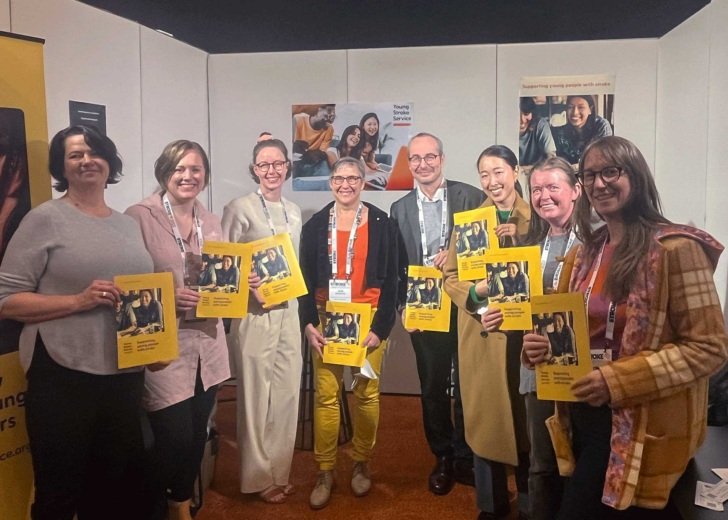Researchers from the Young Stroke Service, an initiative from The Florey, will promote the service for the first time to clinicians and researchers at this year’s Stroke 2023 conference.
The YSS, as it’s known, aims to provide personalised clinical care and additional long-term support to young people with stroke at the completion of their hospital care, and is currently open to participants in Victoria and South Australia.
Representing The Florey, researchers from the stroke research team, including co-leads Professor Julie Bernhardt and Professor Vincent Thijs, will answer questions and provide information about how to get involved at the YSS conference booth.
“We are proud to have established the Young Stroke Service, to support the needs of young people aged 18 to 45. Young adults with stroke have needs related to their age and life stage that are often not catered for in current health services,” Professor Bernhardt said.

Professor Thijs will present a keynote titled Addressing the challenges of stroke in younger people: Australia’s Young Stroke Service.
“I am pleased to present a keynote on the work of the Young Stroke Service. The incidence of stroke in young people is increasing globally and for many young people, the cause of stroke is unclear,” Professor Thijs said.
“By working with young people living with stroke to co-design and deliver new evidence-based approaches to diagnose and manage stroke, we aim to implement clinical interventions that improve outcomes and help young people return to work.”
Held in Melbourne, Australia, the theme for Stroke 2023 is ‘Championing Care’ and will provide the latest insights for research into high quality treatments and therapies for stroke care.
The conference will showcase Australia’s exemplary research, clinical leadership and the growing capacity of all members of the SSA and Smart Strokes community from Australia, New Zealand, and internationally through our workshops, discussion forums, presentations and plenary sessions.
Launched in 2023, the YSS aims to help young people understand why they may have had a stroke and how to protect themselves from future stroke. The service will develop and enhance young people’s access to stroke services, targeting common unmet needs, like getting back to work or study.
The service also aims to be a trustworthy source of information about stroke and stroke recovery and for clinicians to keep in touch with patients and share their progress after their stroke.
